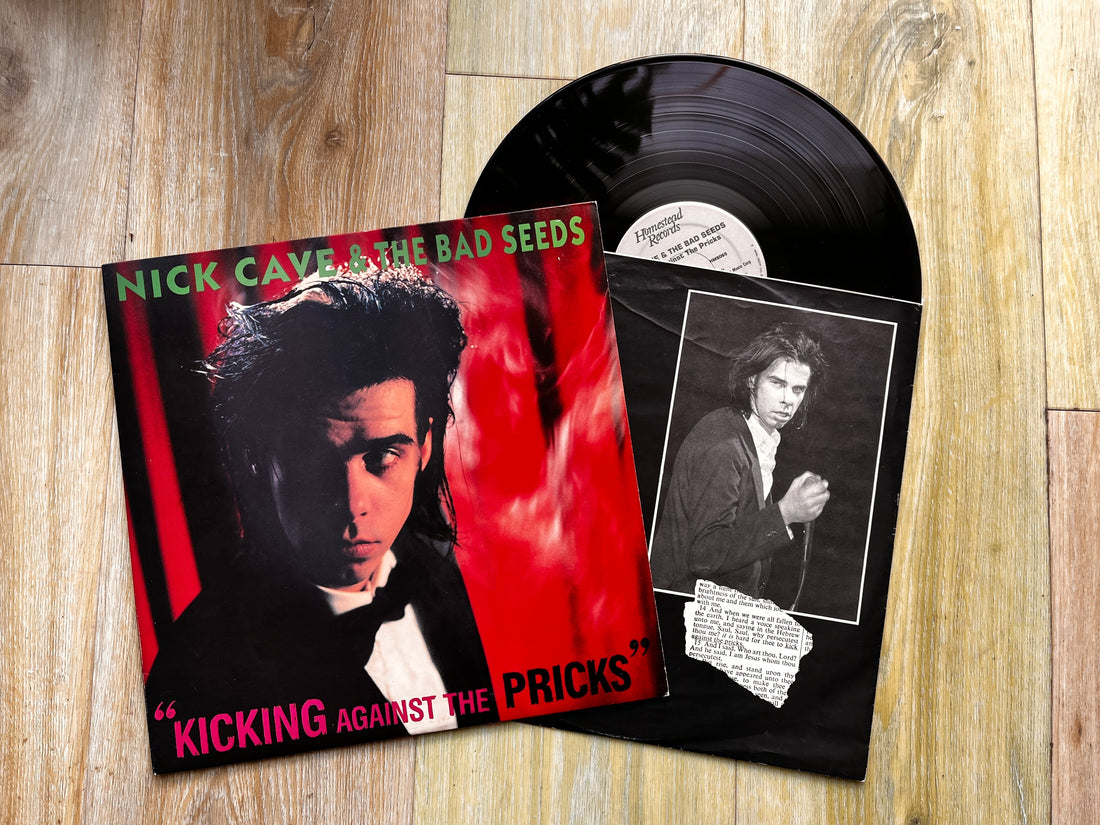
Eternal Rhythm: Nick Cave & The Bad Seeds - Kicking Against The Pricks
In 1986, Nick Cave & The Bad Seeds released Kicking Against The Pricks, an album of covers that feels less like a collection of tributes and more like a séance. These are not simple reinterpretations of beloved songs; they are excavations, transformations, and, in some cases, exorcisms. By filtering other artists’ music through their own haunted lens, Cave and his band reveal as much about themselves as they do the songs they’re covering.
At the time, Cave was still deeply entrenched in the feral chaos that had defined his earlier work with The Birthday Party. But Kicking Against The Pricks signaled a shift. It’s an album that showcases Cave’s deep reverence for musical tradition—blues, gospel, folk, and country—but also his ability to twist that tradition into something uniquely his own. These are songs of suffering, longing, and redemption, themes that would come to define Cave’s work for decades to come.
The Bad Seeds are as integral to the record’s alchemy as Cave himself. This is a band that doesn’t merely play music—they inhabit it. Mick Harvey’s arrangements manage to be both stark and lush, while the interplay between Thomas Wydler’s drums and Barry Adamson’s bass creates a tension that feels like it might snap at any moment. Cave’s voice, always a mix of preacher and madman, finds new shades of vulnerability and power here, veering between hushed intimacy and unhinged fury.
Their version of Johnny Cash’s “The Singer” opens the album with a mission statement. It’s a tale of hubris and downfall, delivered by Cave with a mixture of defiance and weariness. The original is stately, but Cave’s version is ragged and raw, like he’s living the song as he sings it. Similarly, their take on “Hey Joe” transforms the familiar tale of jealousy and murder into something almost unbearably claustrophobic, with Cave’s growl cutting through a slow, dirge-like arrangement.
But the heart of the album might be found in its quieter moments. Their rendition of the traditional hymn “The Carny” is spectral and otherworldly, a reminder of the spiritual weight that runs through even the darkest corners of Cave’s work. And then there’s “All Tomorrow’s Parties,” which strips away the Velvet Underground’s cool detachment and replaces it with a sense of grim inevitability, as if the parties were always destined to end in ruin.
What makes Kicking Against The Pricks so compelling is the way it reframes familiar songs as part of Nick Cave’s own mythos. The album title itself is telling—a reference to the biblical phrase about resisting the inevitable, it encapsulates the tension between tradition and rebellion that defines both the record and Cave’s career. By claiming these songs as his own, Cave draws a line from the past to the present, reminding us that great music is timeless because it speaks to something elemental.
Nick Cave and the Bad Seeds don’t merely reinterpret these songs—they reveal their hidden truths, turning each one into a prism that refracts their own obsessions, fears, and dreams. The result is not just an album of covers but a declaration of intent, a reminder that the best art is always a conversation between what’s come before and what’s yet to be.
Buy a US first pressing from us here
